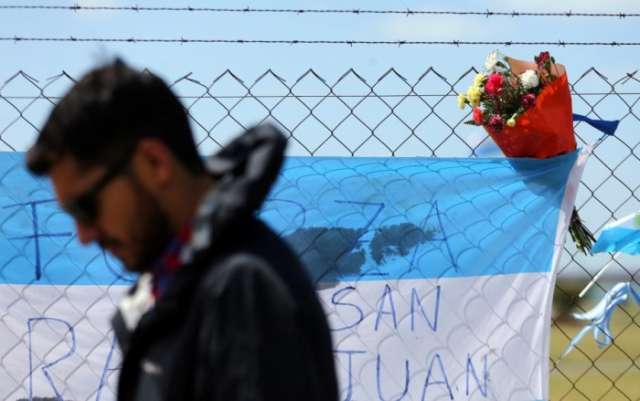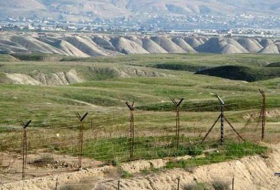“This means understanding how a submarine that had received midlife maintenance and was in perfect condition to navigate apparently suffered this explosion,” he said.
The submarine, called the San Juan, was launched in 1983 and underwent maintenance in 2008 in Argentina.
Macri and the navy both declined to comment directly on the widely held fear that the crew had died. Concerns about their fate have set off a fierce political debate in a society sharply divided between supporters of Macri and his free-market policies and opposition Peronists.
Crew members’ families have expressed outrage at the level of funding and maintenance of the armed forces, whose budget has gradually declined since the fall of a military dictatorship in the 1980s.
That trend continued during the first half of former populist President Cristina Fernandez’s administration, before a slight rebound. Military funding has remained mostly flat since Macri took office in December 2015.
“When Macri arrived in the presidency the destruction of the defense system was so complete that first task was restore to morale,” Senate leader and Macri ally Federico Pinedo said in a radio interview on Friday.
A group of opposition lawmakers aligned with Fernandez demanded that Defense Minister Oscar Aguad testify in Congress, and called for the creation of a congressional committee to investigate the incident.
Araceli Ferreyra, a lawmaker with the leftist Evita Movement, wrote on Facebook that she was concerned about “suppression of information” by the navy early on in the search.
Local news media have reported tensions between the navy and Macri’s administration over lack of timely communication, which both sides have publicly denied.
Marta Yanez, a federal judge from the Patagonian city of Caleta Olivia, also began an investigation into the incident at the request of the navy.
‘NO HOPE’
A sound detected underwater on the morning of Nov. 15, around the time the San Juan sent its last signal and in the same area, was “consistent with an explosion,” navy spokesman Balbi said on Thursday.
The information about the possible explosion came from the Comprehensive Nuclear Test-Ban Treaty Organization, an international body that runs a global network of listening posts designed to check for secret atomic blasts.
Relatives of the crew had arrived at Mar de Plata on Monday, filled with an optimism that had all but disappeared by Friday.
“At this point, the truth is I have no hope that they will come back,” Maria Villareal, mother of one crew member, told local television on Friday morning.
Others said they would remain at Mar del Plata.
“I‘m at the base and I‘m going to stay until they find the submarine,” Silvina Krawczyk, sister of the sub’s only female officer, Eliana Maria Krawczyk, told Reuters through the WhatsApp messaging application.
Around 30 boats and planes and 4,000 people from Argentina, the United States, Britain, Chile and Brazil have joined the search for the submarine, which last transmitted its location about 480 km (300 miles) from the coast.
Some family members accused the navy of putting their loved ones at unnecessary risk by sending them out in a more than 30-year-old vessel that they suspected was not properly maintained, an accusation the navy has denied.
“They killed my brother!” a man leaving the base in a car shouted out to reporters. The older man driving the car was crying.
More about: #Argentine















































